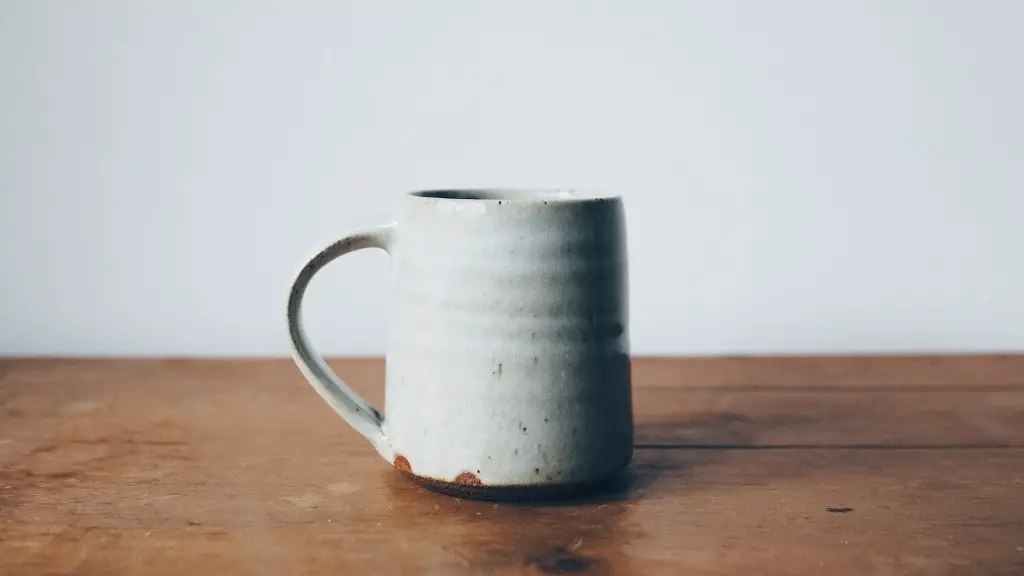Introduction
Teeth whitening is one of the most popular dental procedures around, and with good reason; it can transform your smile and make you feel like a million bucks. But what are the implications of the teeth whitening process when it comes to drinking coffee? When is it safe to indulge in your favourite hot beverage after the procedure? In this article, we take an in-depth look at the effects of coffee on teeth after whitening, as well as offering some useful advice on when to drink coffee again post whitening.
The Science of Teeth Whitening
Teeth whitening involves the use of bleaching agents, such as carbamide or hydrogen peroxide solutions. These chemicals work by entering the enamel, where they release oxygen that in turn breaks up the bonds between the organic molecules responsible for tooth discoloration. This is a safe, non-invasive cosmetic procedure that has been around for decades.
It is an entirely reversible procedure – though once the oxygen molecules have been released and the stains have been removed, the teeth may also become more sensitive. This usually only lasts for a few days after the treatment.
The Effect of Coffee on Teeth After Whitening
As one of the most consumed hot drinks in the world, coffee can have a variety of effects on your teeth, both positive and negative. In addition to its antioxidant potential, coffee can stain teeth – something that any recent teeth whitening recipient will want to avoid.
It is therefore important to be aware of the fact that, while coffee won’t directly interfere with the teeth whitening process, it may still stain your teeth if you consume it too soon after the treatment.
When to Drink Coffee After Teeth Whitening
It is recommended that you wait 24 hours after your teeth whitening treatment before drinking coffee. This will give the enamel time to recover from the effects of the bleaching agent and ensure that your teeth don’t become excessively stained.
If you can’t wait, then opt for a cold beverage instead. The whitening agent leaves teeth much more susceptible to staining from liquids such as coffee, so drinking a cold beverage should help you to avoid any further discoloration.
It is also important to bear in mind that coffee is acidic, and can erode away at the enamel – leaving teeth feeling more sensitive. To avoid this, you should use a straw, drink plenty of sugar-free water after drinking coffee and brush your teeth afterwards.
The Benefits of Teeth Whitening
Though you need to be cautious when drinking coffee after teeth whitening, the benefits of the procedure far outweigh any potential side effects. For example, it can reduce feelings of self-consciousness caused by discolored teeth, improve confidence, and boost self-esteem.
When performed by a qualified professional, you can expect your teeth to be at least 2-3 shades lighter than they were before the procedure – with some studies showing that teeth can be up to 8 shades whiter!
It is also an incredibly fast procedure – with most treatments taking less than two hours to complete – and is fairly inexpensive compared to other cosmetic dentistry options.
Consulting with Your Dentist
If you are considering teeth whitening, the best advice is to consult a certified dentist. They will be able to assess the condition of your teeth and advise you on the procedure and the outcomes you can expect. They will also be able to answer any questions you might have about drinking coffee after teeth whitening – helping you to enjoy your favourite drinks without any issues.
Other Dental Procedures to Enhance Your Smile
Teeth whitening is a great way to restore whiteness to the teeth, but there are some other dental procedures available that can help to enhance your smile. Here, we discuss a few of them.
Porcelain Veneers
If your teeth are discolored or crooked, porcelain veneers may be a good option. Veneers are thin porcelain shells that are attached to the front of your teeth. They look natural and are a long-term solution for those looking to repair chips, cracks or unsightly gaps. However, they may not be the best options if your teeth are significantly misaligned, as you may require orthodontic treatment instead.
Inlays and Onlays
Inlays and onlays are a great option if there is extensive decay in your teeth. They are made from resin or porcelain, and help to strengthen weakened teeth and fill any gaps. They are more durable than fillings and can help to protect against future damage.
Cosmetic Bonding
For minor chips or cracks, or to fill in gaps, cosmetic bonding may be the best option. With this procedure, a composite resin is used to fill in and sculpt the teeth until they are even and symmetrical. While it is not as durable as porcelain restorations, it is a less costly solution and does not require as much enamel removal as other restorative treatments.
Teeth Contouring and Reshaping
If your teeth have minor imperfections, you may be a candidate for teeth contouring and reshaping. This procedure can give the appearance of a straighter and more even-looking smile with minimal alteration to the teeth. The procedure involves removing a small portion of enamel from the tooth and then shaping it to give the desired effect.
Preparing Your Teeth for Teeth Whitening
Before undergoing teeth whitening, it’s important to make sure your teeth are in good condition. If they’re not, your dentist may suggest other treatments to help prepare the teeth for whitening.
Fluoride Treatment
Fluoride treatment can help to strengthen the enamel of your teeth and protect them against staining or discoloration in the future. It is a simple process and can be done during a routine dental visit.
Dental Cleaning
It is important to have regular cleanings and checkups to remove plaque and tartar that can accumulate on the teeth and cause staining. Your dentist will also be able to identify any areas of weakness.
Sealants
Sealants are an excellent way to prevent discoloration by providing an additional protective layer on the teeth. The sealant can be applied to protect the teeth from sugar and bacteria, and can help to keep them looking bright and white.
Removing Stains After Teeth Whitening
Once your teeth have been whitened, it is important to take steps to protect the enamel and remove any stubborn stains. Here are a few tips for keeping your teeth looking their best.
Brush Regularly
Brushing your teeth twice a day with a fluoride toothpaste can help to prevent staining and keep your teeth healthy. It is also important to floss to remove any trapped food particles.
Eat a Balanced Diet
Eating a healthy, balanced diet is key to maintain the whiteness of your teeth. Avoid acidic, sugary or staining foods such as berries, coffee or tea. Instead, focus on eating lots of fresh fruit and vegetables which can help to keep your teeth clean and healthy.
Try Whitening Toothpaste
Whitening toothpastes contain special abrasives that can help to remove stubborn stains from the surface of the teeth and keep them looking brighter. They can also help to strengthen the enamel, making them an ideal choice for anyone who recently had teeth whitening.
Conclusion
After undergoing teeth whitening, it is important to refrain from drinking coffee for at least 24 hours, to prevent any further staining. If you can’t wait that long, opt for a cold beverage instead. Once you have had your teeth whitened, your dentist may also suggest further treatments to prepare your teeth for whitening and prolong the effects of the treatment. By following the tips in this article, you can enjoy a brighter, whiter smile for longer.





